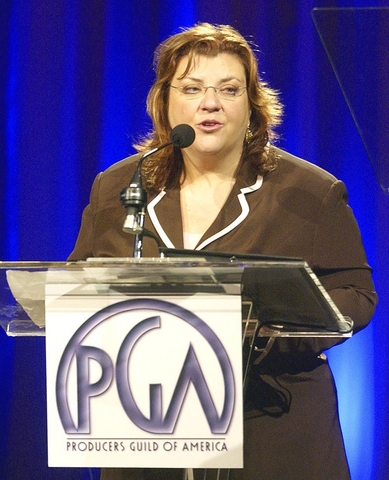American actor Harvey Keitel features alongside Taiwanese actress Vivian Hsu (徐若瑄) in a Singaporean movie about a hit man that was released in the city-state yesterday.
One Last Dance, produced by Singapore's MediaCorp Raintree Pictures, is about an assassin hired to kill the men responsible for kidnapping an important figure's son.
The movie also features Hong Kong actor Francis Ng (吳鎮宇) from Infernal Affairs II, and Hong Kong actor Ti Long (狄龍) from John Woo's (吳宇森) classic gangster film A Better Tomorrow, according to the movie's Web site.

PHOTO: AP
Keitel plays a character called Terrtano in One Last Dance.
One Last Dance, which was screened in the world-cinema competition at the Sundance Film Festival last year, is directed by Brazilian-born director Max Makowski, who has directed Nike commercials and the US reality TV show Queer Eye for the Straight Guy.
Gail Berman, one of the most powerful women in Hollywood, resigned on Wednesday as president of Paramount Pictures after less than two years on the job as the film studio made way for an executive overhaul.

PHOTO: AP
A statement issued by the Viacom Inc.-owned film company said a "reorganization of the studio's production structure will be announced shortly," but no specific reason for Berman's departure was given.
Berman, 49, has been the focus of scrutiny almost from the moment she assumed the Paramount job in May 2005. In the past year, several reports have surfaced around Hollywood that the former Fox TV executive had a difficult time working with movie agents, talent managers and others.
"Gail's dedication in the last 18 months has been invaluable during this important and historic time at Paramount," said studio Chairman and CEO Brad Grey, who hand-picked Berman shortly after taking over from longtime studio boss Sherry Lansing in March 2005.

PHOTO: TAIPEI TIMES
As president of Paramount, Berman was one of the few women in Hollywood with the power to put motion pictures into production, overseeing development, budgeting and casting of those films.
United 93, a tense drama set aboard one of four airliners seized by the Sept. 11 hijackers, gathered more pre-Oscar momentum on Monday as it was named last year's best film by online critics.
The documentary-style movie, directed by British filmmaker Paul Greengrass, recounts the efforts of passengers on United Airlines Flight 93 to regain control of the plane before it crashed in rural Pennsylvania.
The Online Film Critics Society, an international association of Internet-based cinema journalists, also named Martin Scorsese as the best director of 2006 for his work on crime drama The Departed.
The society's top acting awards went to Forest Whitaker for his portrayal of Ugandan dictator Idi Amin in The Last King of Scotland and to Helen Mirren for her role as Britain's Queen Elizabeth II in The Queen.
Actress Yvonne De Carlo, known to one generation as Moses' wife in C.B. De Mille's The Ten Commandments and to another as the wife on television's hit show The Munsters, has died at age 84, a source said on Wednesday.
De Carlo, who last appeared on screen in a 1995 television production, died of natural causes at the Motion Picture & Television Fund's Retirement Home in the Los Angeles suburb of Woodland Hills, the source said. A spokeswoman for the home had no comment.
A biopic about French singer Edith Piaf was selected to open the competition of the Berlin Festival next month, organizers said on Wednesday.
La Vie en Rose by director Olivier Dahan will make its world premiere on Feb. 8 at the 57th Berlinale, which has struggled the last few years with poorly received opening films that critics said were picked only if their stars attended.
The film, already sold to distributors around the world, stars Marion Cotillard as Piaf, who died in 1963 at age 47 after a rollercoaster career and is known around the world for her song Non, je ne regrette rien (No, I regret nothing).
The cast also includes Gerard Depardieu.

Exceptions to the rule are sometimes revealing. For a brief few years, there was an emerging ideological split between the Democratic Progressive Party (DPP) and Chinese Nationalist Party (KMT) that appeared to be pushing the DPP in a direction that would be considered more liberal, and the KMT more conservative. In the previous column, “The KMT-DPP’s bureaucrat-led developmental state” (Dec. 11, page 12), we examined how Taiwan’s democratic system developed, and how both the two main parties largely accepted a similar consensus on how Taiwan should be run domestically and did not split along the left-right lines more familiar in

As I finally slid into the warm embrace of the hot, clifftop pool, it was a serene moment of reflection. The sound of the river reflected off the cave walls, the white of our camping lights reflected off the dark, shimmering surface of the water, and I reflected on how fortunate I was to be here. After all, the beautiful walk through narrow canyons that had brought us here had been inaccessible for five years — and will be again soon. The day had started at the Huisun Forest Area (惠蓀林場), at the end of Nantou County Route 80, north and east

Specialty sandwiches loaded with the contents of an entire charcuterie board, overflowing with sauces, creams and all manner of creative add-ons, is perhaps one of the biggest global food trends of this year. From London to New York, lines form down the block for mortadella, burrata, pistachio and more stuffed between slices of fresh sourdough, rye or focaccia. To try the trend in Taipei, Munchies Mafia is for sure the spot — could this be the best sandwich in town? Carlos from Spain and Sergio from Mexico opened this spot just seven months ago. The two met working in the

This month the government ordered a one-year block of Xiaohongshu (小紅書) or Rednote, a Chinese social media platform with more than 3 million users in Taiwan. The government pointed to widespread fraud activity on the platform, along with cybersecurity failures. Officials said that they had reached out to the company and asked it to change. However, they received no response. The pro-China parties, the Chinese Nationalist Party (KMT) and Taiwan People’s Party (TPP), immediately swung into action, denouncing the ban as an attack on free speech. This “free speech” claim was then echoed by the People’s Republic of China (PRC),